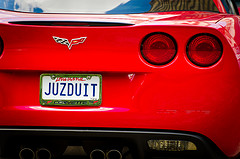My Expectations
To be fair I need to discuss my expectations first. In retrospect my expectations were not clear. I did not follow Daniel's rule and had not defined an explicit learning goal. (See my previous discussion on how to go on tour for details.) I had expectations that I would pair with fantastic masters of our craft, who are much superior to me, and see astounding things. That was not measurable and definitely not clear enough. There was no goal and I did not align my plans accordingly. Obviously my expectations were too high, sigh.
When starting my tour I knew TDD well and had been developing professionally since more than a decade. In contrast to that many of my pairing sessions were basic. I helped developers to create their first unit test. Maybe I should have done the tour five years earlier. Daniel even proposed that the perfect time for a Journeyman Tour might be for young developers with two to three years of experience.
 A friend called me a master and remarked that masters do not go rounds any more. They do not learn like that (Smi's rule). I am no master but there seem to be diminishing returns for a learning tour if you are already advanced in some areas. Some coder friends have also expressed this concern.
A friend called me a master and remarked that masters do not go rounds any more. They do not learn like that (Smi's rule). I am no master but there seem to be diminishing returns for a learning tour if you are already advanced in some areas. Some coder friends have also expressed this concern.Concrete Learnings
To give you an impression here is a list of all concrete learnings of the first and second week. I spent ten days pair programming with four different people in this time. While it is hard to express the real learning, here are the things I found interesting enough to write down during the sessions:
- Learned about little HTML5 games and their way of publishing and making money.
- Brushed up my IntelliJ IDEA short-cut knowledge.
- Improved my Mechanics of pair programming, how to deal with exhaustion and zoning out.
- How to handle dependencies with local and shared lock files.
- Startup developers are "poor" creatures because they support their customers, do operating, fix bugs, help less technical co-founders and have very little time for actual development.
- I coded Python for the first time - or more accurate - paired on Python code.
oh-my-zshwith plugins is an useful shell extension.- I relearned Vi as it had been many years since I had last used it.
- I paired on existing C# code for the first time.
- The "Rename Overloads" is a nice function of Visual Studio (or Resharper) that I had not seen in Java yet.
- When the current Pomodoro finishes, run the tests.
- I learned more about dependencies of OSGi bundles and their problems.
- Deploying OSGi bundles in an OSGi aware server is a real pain.
- It is possible to create a cash flow calculation and business plan in a pair as well.
Practice
The tour gave me a lot of practice in different areas, maybe I had even more practice than learning new things. I had little pair programming experience before. On my tour I pair programmed all day, each day for almost three months. That improved my pair programming skills by far. In the end of the tour I was able to get in sync with a new pairing partner quickly. Since my tour I love pair programming. I feel stupid when working alone, so I rarely do it nowadays.
Next I practised getting productive in a new project. By running Hackergarten in Vienna for more than a year I was already comfortable with that. On my tour I figured out how to ask for the right amount of context without slowing down my pair with too many questions. Today I am confident to be productive in a new project or technology within a few hours - with the help of a pairing partner who knows the area of course. This conforms to Corey Haines' observation that he learned most how to start with an unfamiliar code base immediately. While this is very helpful for my current occupation as Code Cop and Freelance Code Mentor, I do not know how much this would help you during regular development, where you stay in the project for months of even years.
 Value
ValueI understand the value of practice and like working on code katas and other practice exercises. Still my improved IntelliJ IDEA short-cut-fu feels less valuable than working in Typescript because there was nothing new in the former and everything new in the later. I know that my feeling is wrong. The mastery of IntelliJ short-cuts is important and helps even when working in other languages (as long as I stay with JetBrains products) while the basics of another static, object orientated, main-stream language are forgotten soon (unless I get into a real project, which I did not).
Some of my learnings were not interesting, e.g. creating an Excel cash flow calculation was not what I expected to do nor had ever wanted to. Working with my pair on the tasks he or she had chosen forced me to a few boring things, that I hated and would have never done on my own. It was painful but definitely broadened my horizon. Maybe these are the most valuable experiences because I would never get them otherwise. Or maybe these experiences are useless because I will never do such things and I wasted a few days of my life. I am unable to decide.
Satisfaction
My expectations partly fulfilled by learnings and practice, which both have a vague value, result in a certain feeling of satisfaction. Still many questions remain. Am I satisfied with the outcome of my tour compared to the time and money involved? What is the value of the things I learned? Could I have learned more useful things in a shorter time? And even if, would I have learned it (or done something else instead)? Maybe more interesting to you is if you would be satisfied with such a tour?
So let us look at some hard facts again. Before my tour I got in touch with 32 companies. During the 60 days of my tour 16 companies hosted me and I paired with 26 people. I further attended two conferences and 15 user group meetings in the evenings. My overall statistics shows me 40% of great pairing sessions which were awesome and where I had insights into TDD or a lot of fun. Then there were 40% of tolerable pairing sessions which were sort of OK. The remaining 20% were bad sessions, where I did not learn much or even felt like crying. It is true that you learn from everybody, even from very beginners, but e.g. handling difficult people was not on my list of learning goals.
Conclusion
Even with some of my expectations not satisfied, my Code Cop Journeyman Tour was one of the most interesting and most intense times of my life. Its overall experience was awesome. Half of the time I did great work while pairing with amazing people. I learned around a hundred new things and had a lot of practice. In comparison, had I stayed with my previous employer I would have experienced a few great days and learned a few new things during regular work. The tour made a massive difference for me and I am glad I went for it. Until today I plan for single Journeyman visits from time to time. Last year I spent three days pair programming for food. While this is less than 2% of my total work time, I am still proud of myself that I kept the spirit of the tour.
 Final Recommendation
Final RecommendationIf you came here to check if it is worth to go on tour then my answer is yes. A Pair Programming Tour is a great thing to do. Even if you go for a single month, visiting only four companies for a few days each, you will see a lot of new things and work with people you never worked with before. It is the right thing to do. Now go and do it!








No comments:
Post a Comment